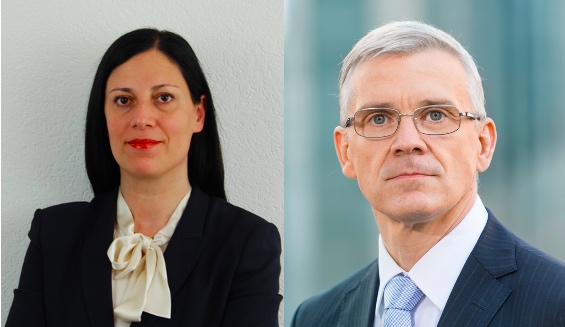 In the past, CEOs in the western world presided over a mainly white, male, and career-focused workforce, and were running their company with mostly profit and shareholder value in mind.
In the past, CEOs in the western world presided over a mainly white, male, and career-focused workforce, and were running their company with mostly profit and shareholder value in mind.
They used to have a linear career, often built within a single organization, and with a CV which would often include an impressive business school brand name attended at latest for their MBA.
The business environment that today’s CEOs, and especially those of the future, face looks fundamentally different. Increasingly, business students and young managers have a diverse set of experiences. Many have studied in face to face and online modes, with students from all over the world, and often in various countries, for instance through exchange programs. Some of them may have volunteered in Africa or other culturally rich and diverse continents or may have spent a gap year touring Australia or gaining work experience outside their own field of study; and more and more students may have graduated from innovative and forward-looking programs where corporate social responsibility, sustainability and diversity were core modules. These new generations have their brain wired in a different way, and as they rise through the ranks, they tend to demand different experiences, work-life balance and have a much broader idea of what constitutes their ambition.
With a faster change of pace and expectations more diverse than ever before, future CEOs won’t be able to lead from their pedestal and will have to be aware of a wider range of expectations, including social and community issues, gender and other topics that in the past were considered taboo or outside the scope of corporate leadership.
The examples of how diversity has already been changing the business landscape as well as the expectations abound. Marc Benioff, CEO of Salesforce took a stand against homelessness in San Francisco and established an initiative to study its impact and how to improve things. Microsoft’s CEO Satya Nadella who ranked first in the 2020 list of the most successful CEOs, took a position on diversity efforts and has frequently spoken publicly about social issues such as corporate response to climate change and female leadership in tech. In March 2021, Nike announced it would tie executive pay to a 5-year goal for increasing racial and gender diversity. And let’s not forget, in past years major consumer brands have made a point to become sponsors of Pride Month and events to foster acceptance for LGBTQ diversity. Alan Joyce from Qantas, Anne Richards from Fidelity International, Tim Cook from Apple, all run successful organizations and have become advocates of the cause. As Cook himself said: “Apple supports an unfinished work of equality for diverse and intersectional communities”. However, that is not yet the norm, and future CEOs will have to observe and learn from those who have already started to set the future tone in this respect.
In addition to dealing with diversity, going forward companies not only need to generate profit and shareholder value but are equally measured on their societal impact. Even mainstream investors such as Blackrock are pushing CEOs to consider how the companies they run can create a positive societal impact beyond providing shareholder value the Business Roundtable of U.S. CEOs has recently issued a statement in which its members committed to leading their companies for the benefit of all stakeholders, reaching far beyond the past focus on shareholders’ value. Running a successful company today and in the future means doing good while doing well.
The impact of social leadership, gender or racial diversity and other topics that were ignored or underestimated in the past can now be measured and therefore are under constant public scrutiny by investors and other stakeholders and any future CEO will have to understand and genuinely value them.
With so much change on how organizations look and what they need to deliver, the role and profile of the CEO also need to change. To run a diverse workforce will increasingly require CEOs that stem from a more diverse pool of candidates matching the organizations they are meant to lead. Empathy, emotional intelligence, true appreciation of diversity and the capability to balance the human and technology aspects of life will no longer be optional, but basic capabilities. And so will be the predisposition to understand the link between purpose, performance and impact. This requires a new degree of agility and the ability to embrace new trends rather than ignoring or snubbing them.
Finally, the very role of leadership needs to be redefined for more diverse organizations. CEOs cannot afford to be autocratic rulers of a circumscribed little kingdom but instead they need to be coaches of diverse teams juggling different tasks, balancing multiple goals, and achieving seemingly contrary demands of varying stakeholders. Moreover, C-suite candidates will have to support the CEOs’ causes, embracing themselves in the topics and values that will be required by future CEOs.
At the same time, whilst the role of a CEO has changed a lot, one building block of corporate life remains: CEOs need to deliver organizational performance. And in the future with CEO roles having more dimensions than before, CEOs will need to be both more human and more capable than ever.
 About the authors
About the authors
Article by Marianna Zangrillo and Thomas Keil and, co-authors of The Next CEO: Board and CEO Perspectives for Successful CEO Succession published by Routledge, priced £29.99, available from Amazon and leading international booksellers.
WeAreTheCity covers the latest female centric news stories from around the world, focusing on women in business, careers and current affairs. You can find all the latest gender news here.
Don’t forget, you can also follow us via our social media channels for the latest up-to-date gender news. Click to follow us on Twitter, Facebook, Instagram, and YouTube.






